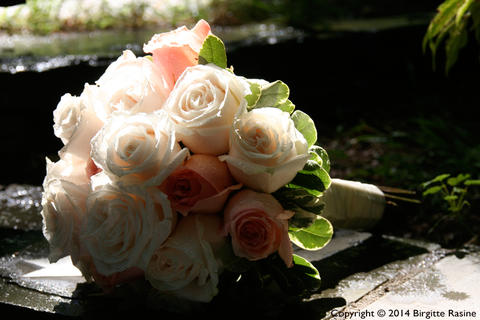
While the annual frenzy of chocolate and roses that is St. Valentine’s Day runs its course, let’s talk about what no advertiser seems to get, and what every writer should: real romance.
Let’s get two things clear. One: romance isn’t sex. Sorry to disappoint if that’s what you thought this post was about. Two: most romance novels do not have a clue about the essence of the concept that defines their genre. (Two point one: this is not a post on how to write a romance novel.)
If you did buy your significant other a rock or some other product smeared with millions in advertising for Valentine's day, return it. This post may give you a few much better ideas.
Imprisoned in Pink
Typically, “romance" evokes the image of two lovers—in the worst commercial case, a clean-shaven man offering a little velvet box to his beloved (who happens to be wearing flawless makeup). This is where the very concept of romance gets cut short—before it has a chance to define itself. Some dictionaries define romance as “love that emphasizes emotion over libido.” Phooey. That’s like saying tornadoes are wisps of lightly twisting wind.
Romance walks the depths of the human soul and drives the currents of our emotions. Romance gives meaning to the meaningless and paints thrill into routine. Romance is the drug of life. To write with it, you've got to overdose on it a little.
These examples are but slight brushes across the surface of romance's roiling sea, but they'll do:
• That milky fog that pours over the foothills in massive sheets of liquid cotton (especially here in the Bay Area)
• The musky smell of the corridors of history in an old European palace, a Maya ruin, an ancient basilica
• The razor glint of a sportscar's sleek line as it races through freeway traffic (here the car becomes the seducer, not the person driving)
• Time stands still while you stand at a traffic light, lost in the million white breaths of blooming cherry trees across the street
• And yes, getting soaked in the arms of your lover in a downpour on the Pont Neuf in Paris is romantic too.
Romance Hurts
I dare say, most people would likely say romance is a positive, feel-good emotion. Thankfully, this is not always so. I mean, what sort of literary fodder would you have if all that romance was a slobbery mess of pink bows? If you're going to produce a work that leaves your readers gasping for more, you'd better get your hands in there and dig. The good stuff runs deep.
Painful, strange, tragic things can be just as romantic as all the happy stuff if not frightfully more so. No, not car accidents or murders, not that kind of tragic. I mean events, situations, scenarios pregnant with complex, churning emotions, implications, meanings. Like these (and every one actually happened, to yours truly):
• Seeing zeroes pop up on the ATM on a sweltering street in southern Spain when all you have left is a few pesetas and you need to get your sister back to Madrid
• Convincing a random taxi driver in Greenwich, Connecticut to go brave the dark avenues of the Bronx to extract the man you love from the claws of a massive and crippling blackout... and waiting long into the night until those headlights roll up in front of you
• Navigating an unmarked river in the middle of South America full of piranhas and electric eels, knowing no one would find you if something went wrong
• Finding yourself belly to belly in a narrow elevator on the sixth floor with a former President of a Latin American country (his belly was the one invading my space!)
You can't buy, research, or fake romance. You've got to get out there and live it, feel it in its fullest, deepest, most painful essence. Only then can you feed your work with it.
Get out there and wake up your literary senses. Romance awaits!
Note: The original version of this post was first published on The Write Practice on February 12, 2014.







